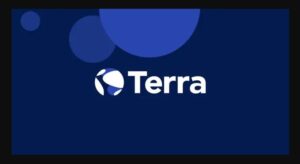McCarthy Tetrault: Fintech Regulatory Developments: 2021 Year in Review
McCarthy Tetrault | Ana Badour, Nancy Carrol, Hartly Lefton, Laure Fouin and Michae Scherman | Jan 4, 2022

As anticipated in our 2020 year in review, there were significant and notable developments in the Canadian Fintech industry in 2021.
The following is a summary of some of the key Fintech developments in 2021, as well as some regulatory developments on which to keep a watchful eye in 2022.
WHAT WE SAW IN 2021
-
PAYMENTS DEVELOPMENTS
- The Retail Payment Activities Act (“RPAA”) was introduced and enacted in 2021. This legislation, once in effect, will require payment service providers operating in Canada to register with the Bank of Canada and meet certain operational requirements, including requirements in respect of safeguarding end-user funds, mitigating operational risk and reporting requirements. The relevant regulations and guidance have not yet been issued, however, the Bank of Canada has released minutes of meetings of the Retail Payment Advisory Committee and some discussion guides from such meetings.
- The Federal Advisory Committee on Open Banking also released its final report in August 2021. The report recommended that the federal government implement an open banking system by 2023, based on a hybrid “made-in-Canada” collaborative approach between industry and policy makers. The report suggests the appointment of an open banking lead in the early phase, to be replaced by an entity to administer the open banking system during the second phase. In addition, the report recommended an accreditation system. On the question of liability, the report recommended that liability should flow with the data and lie with the party at fault.
See: Interac and many of Canada’s leading financial institutions enhance Interac e-Transfer to introduce instant digital payments for businesses
- Payments Canada launched Lynx, its high-value payment system replacing the Large Value Transfer System (“LVTS”), in September 2021. Lynx will support data-rich payments through ISO 20022 messages. Payments Canada also released a consultation paper on the Pre-Authorized Debits (PAD) Rule, seeking to modernize it.
-
ANTI-MONEY LAUNDERING REGULATORY DEVELOPMENTS
- On June 1, 2021, a series of regulatory amendments made to the Proceeds of Crime (Money Laundering) and Terrorist Financing Act(the “PCMLTFA”) and related regulations over the past few years came into force, together with changes to guidance issued by the Financial Transactions and Reports Analysis Centre of Canada (“FINTRAC”). New obligations came into effect with respect to prepaid payment products and virtual currency transactions, while designated non-financial businesses and professions (“DNFBPs”) now have obligations with respect to politically exposed persons and heads of international organizations (“PEP/HIO”) and beneficial ownership.
- The FINTRAC guidance now provides for a new reliance method and a simplified identification method as a way to identify a person or entity. FINTRAC also issued new guidance on the 24-hour rule and the travel rule, while updating existing guidance on business relationships, ongoing monitoring, third party determination, terrorist property reporting and correspondent banking relationships.
- FINTRAC also issued a notice stating that it will exercise flexibility and reasonability when assessing reporting entities’ compliance with the new requirements. From June 1, 2021 to March 31, 2022, FINTRAC will assess compliance with the regulatory requirements in effect prior to June 1, 2021. FINTRAC will begin assessing compliance with the amended requirements on April 1, 2022, taking a reasonable and flexible approach, as communicated in the Notice on forthcoming regulatory amendments and flexibility.
- In 2021 FINTRAC began taking full responsibility for compliance examinations of federally regulated financial institutions that were formerly undertaken by OSFI.
See: US House Committee on Financial Services Provides Insight into Regulatory Needs of Crypto Industry
- On the global front, the Financial Action Task Force (“FATF”) issued key guidance on virtual assets, outlining its view on the application of the FATF recommendations to virtual assets, including providing further clarification on the definitions of “virtual assets” and “virtual asset service providers” and addressing current developments such as stablecoins, non-fungible tokens (“NFTs”), initial coin offerings (“ICOs”), decentralized finance (“DeFi”) and decentralized applications (“DApps”).
-
CRYPTOCURRENCY AND DIGITAL ASSET REGULATORY DEVELOPMENTS
- Securities Developments
- In March 2021, the Canadian Securities Administrators (“CSA”), along with the Investment Industry Regulatory Organization of Canada (“IIROC”), published CSA Staff Notice 21-327: Guidance on the Application of Securities Legislation to Entities Facilitating the Trading of Crypto Assets (see our insights into Staff Notice 21-329 here) clarifying their views that entities facilitating the trading of crypto assets may be subject to securities legislation: (1) when the crypto asset is a security or a derivative, or (2) when the crypto contract or instrument does not result in an obligation to make immediate delivery of the crypto asset or is not settled by the immediate delivery of the crypto asset (a “crypto contract”). As a result, we expect to see regulatory scrutiny increase in Canada as compliant players take additional steps to become or stay in compliance while non-compliant players will have to enter into discussions with regulators, review their business models or exit the Canadian market altogether. Entities facilitating the trading of crypto assets, whether as dealers or as marketplaces, may be considered crypto-trading platforms (“CTPs”). As such, they should obtain legal advice on their business model and consider engaging with regulators.
- A number of entities facilitating the trading of crypto assets obtained temporary discretionary exemptions to continue to operate under certain specific conditions while working toward their full investment dealers registrations with the appropriate members of the CSA and their dealer member registrations with IIROC.
- In addition, CSA and IIROC published Staff Notice 21-330 Guidance for Crypto-Trading Platforms: Requirements relating to Advertising, Marketing and Social Media Use (see our insights into Staff Notice 21-330 here) to provide guidance to CTPs regarding statements in advertising and marketing materials that could be considered false or misleading, concerns over the use of gambling-style contests, promotions or schemes, compliance and supervisory challenges when using social media to promote CTPs, and compliance with securities legislation generally.
See: Updated Report: Regulation of Cryptocurrency Around the World (Nov 2021)
- Regulation of Crypto Contracts as a Regulatory Priority
- The Ontario Securities Commission (“OSC”) in its 2021 / 2022 Statement of Priorities specifically includes “work with the CSA and IIROC, to strengthen oversight of crypto asset trading platforms to bring crypto firms engaging in dealer or marketplace activities into compliance with securities laws”.
- IIROC in its 2022 Statement of Priorities also specifically intends to “continue to work with the CSA in ensuring that [crypto asset trading platforms] subject to [securities law] requirements are fully integrated in the Canadian regulatory system”.
- Enforcement Actions Against Foreign Platforms
Continue to the full article –> here
 The National Crowdfunding & Fintech Association (NCFA Canada) is a financial innovation ecosystem that provides education, market intelligence, industry stewardship, networking and funding opportunities and services to thousands of community members and works closely with industry, government, partners and affiliates to create a vibrant and innovative fintech and funding industry in Canada. Decentralized and distributed, NCFA is engaged with global stakeholders and helps incubate projects and investment in fintech, alternative finance, crowdfunding, peer-to-peer finance, payments, digital assets and tokens, blockchain, cryptocurrency, regtech, and insurtech sectors. Join Canada’s Fintech & Funding Community today FREE! Or become a contributing member and get perks. For more information, please visit: www.ncfacanada.org
The National Crowdfunding & Fintech Association (NCFA Canada) is a financial innovation ecosystem that provides education, market intelligence, industry stewardship, networking and funding opportunities and services to thousands of community members and works closely with industry, government, partners and affiliates to create a vibrant and innovative fintech and funding industry in Canada. Decentralized and distributed, NCFA is engaged with global stakeholders and helps incubate projects and investment in fintech, alternative finance, crowdfunding, peer-to-peer finance, payments, digital assets and tokens, blockchain, cryptocurrency, regtech, and insurtech sectors. Join Canada’s Fintech & Funding Community today FREE! Or become a contributing member and get perks. For more information, please visit: www.ncfacanada.org
Related Posts
- &
- 2021
- 2022
- accreditation
- Action
- activities
- Additional
- Advertising
- advice
- advisory
- affiliates
- analysis
- Application
- applications
- April
- around
- article
- asset
- Assets
- AUGUST
- Bank
- Banking
- blockchain
- business
- business model
- businesses
- cache
- Canada
- Canadian
- Coin
- collaborative
- commission
- community
- compliance
- continue
- contract
- contracts
- Crime
- Crowdfunding
- crypto
- crypto asset
- crypto firms
- Crypto Industry
- crypto-assets
- cryptocurrency
- Currency
- Current
- data
- decentralized
- Decentralized Applications
- Decentralized Finance
- delivery
- digital
- Digital Asset
- Digital Assets
- Digital Payments
- Early
- ecosystem
- Education
- Exercise
- Exit
- eye
- FATF
- Federal
- Federal government
- finance
- financial
- Financial institutions
- financial services
- fintech
- Flexibility
- flow
- full
- funding
- funds
- Global
- Government
- House
- HTTPS
- Hybrid
- Identification
- identify
- Including
- Increase
- industry
- information
- initial coin offerings
- Innovation
- innovative
- insights
- institutions
- Insurtech
- Intelligence
- International
- investment
- IT
- Key
- large
- Law
- lead
- leading
- Legal
- Legislation
- liability
- March
- Market
- Marketing
- marketplace
- materials
- Media
- meetings
- Members
- model
- money
- Money Laundering
- networking
- non-fungible tokens
- Offerings
- Ontario
- open
- open banking
- operating
- opportunities
- organization
- organizations
- Paper
- partners
- payment
- payment system
- payments
- Platforms
- players
- policy
- Products
- projects
- promote
- property
- Regtech
- Regulation
- regulations
- Regulators
- regulatory
- reliance
- report
- Reports
- Requirements
- retail
- review
- Risk
- Sectors
- Securities
- security
- seeking
- Series
- Services
- Social
- social media
- Stablecoins
- Statement
- stay
- support
- system
- task force
- temporary
- the world
- Tokens
- Trading
- Transactions
- us
- value
- View
- Virtual
- virtual currency
- Work
- works
- world
- year
- years


